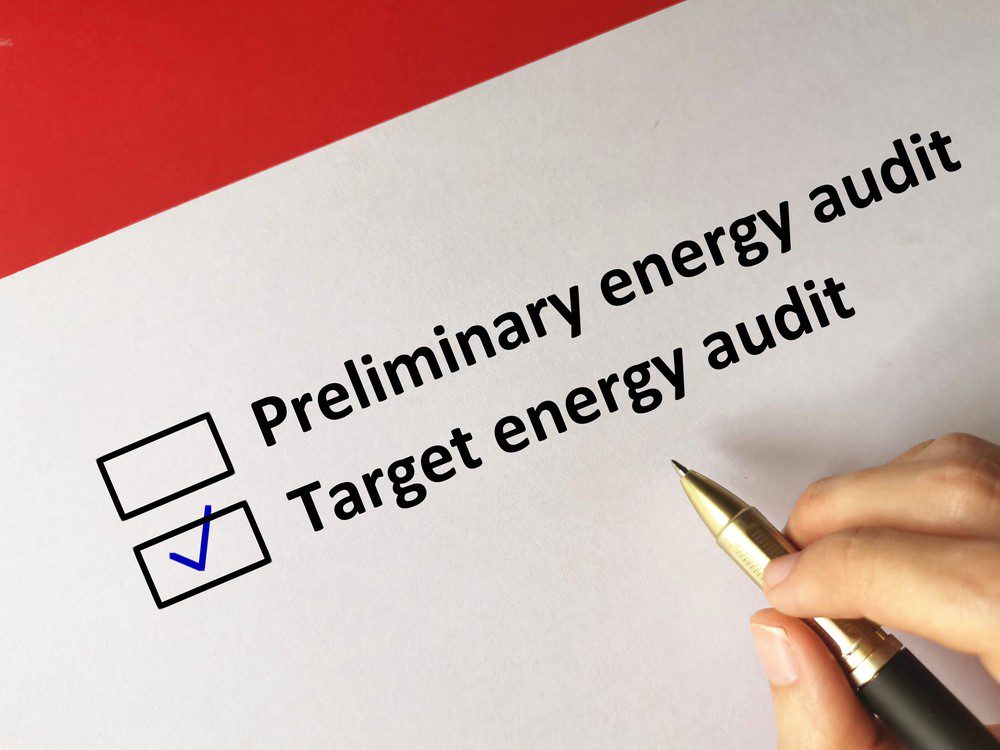The world is facing a critical juncture in its pursuit of sustainable development. The increasing demand for energy, coupled with environmental concerns, has led to a global push towards renewable energy sources. Harnessing the power of renewable energy, such as solar, wind, hydro, and geothermal, offers a promising solution to reduce greenhouse gas emissions and combat climate change. However, making the transition to renewable energy is a complex endeavor that requires careful planning and evaluation. This is where energy audits play a pivotal role in supporting the shift to renewable energy. In this article, we will explore how energy audits can effectively bolster the adoption of renewable energy, paving the way for a greener and more sustainable future.
Understanding Renewable Energy
Renewable energy is derived from natural resources that are continuously replenished, making them an environmentally friendly alternative to fossil fuels. Solar energy harnesses the power of the sun, wind energy captures wind motion, hydroelectric power utilizes flowing water, and geothermal energy taps into the Earth’s heat. The benefits of renewable energy are numerous, including reduced greenhouse gas emissions, decreased dependence on finite resources, and enhanced energy security. Although challenges like intermittency and initial investment exist, advancements in technology and growing adoption are mitigating these concerns.
The Significance of Energy Audits
Energy audits are systematic assessments of energy consumption patterns and infrastructure within a building, facility, or organization. These audits serve a dual purpose: identifying energy inefficiencies and providing recommendations to optimize energy consumption. By conducting energy audits, businesses and households can gain valuable insights into their energy usage and discover opportunities to reduce wastage and save costs. Moreover, these audits form a crucial foundation for integrating renewable energy solutions.
Energy Audits in the Context of Renewable Energy Transition

Before embarking on the path to renewable energy, it is essential to understand the existing energy consumption patterns and inefficiencies. Energy audits provide a comprehensive analysis of how energy is consumed within a system, allowing for informed decision-making. Through detailed assessments, energy auditors can determine the feasibility of integrating renewable energy sources into the existing infrastructure.
Energy audits also help in quantifying the potential energy savings and cost-effectiveness of renewable energy solutions. This analysis aids in understanding the long-term financial benefits and ROI of renewable energy projects, making them more attractive to businesses and investors.
Furthermore, energy audits play a crucial role in evaluating the environmental impact of current energy consumption. By calculating the carbon footprint, organizations can assess their contribution to greenhouse gas emissions and identify areas for improvement. Armed with this information, businesses can strategically implement renewable energy solutions to reduce their carbon footprint and enhance sustainability efforts.
Conducting a Comprehensive Energy Audit
To conduct a successful energy audit, a systematic approach is essential. Here is a step-by-step guide to performing energy audits:
- Gathering Energy Consumption Data: Collect historical energy bills and records to establish consumption patterns over time. Understanding energy usage during peak and off-peak hours is crucial for identifying potential energy-saving opportunities.
- Inspecting Energy Systems and Infrastructure: Thoroughly examine the building’s energy systems, such as heating, ventilation, air conditioning, lighting, and appliances. Identify any outdated or inefficient equipment that may be contributing to energy wastage.
- Analyzing Energy Consumption Patterns and Trends: Utilize data analytics to analyze energy usage data and identify consumption trends. This analysis can uncover hidden patterns and highlight areas where energy efficiency can be improved.
- Identifying Energy-saving Opportunities: Pinpoint potential areas for improvement, such as installing energy-efficient lighting, upgrading insulation, and optimizing HVAC systems. These measures can lead to significant energy savings and reduce operational costs.
- Recommending Renewable Energy Solutions: Based on the audit findings, propose suitable renewable energy solutions tailored to the organization’s specific needs and goals. For instance, solar panels may be recommended for a building with ample sunlight exposure, while wind turbines could be suggested for a windy region.
Leveraging Energy Audit Results for Renewable Energy Integration
The data obtained from energy audits plays a critical role in the successful integration of renewable energy solutions. Here’s how organizations can leverage energy audit results to facilitate the adoption of renewable energy:
Evaluating Renewable Energy Options Based on Audit Findings: Energy audits provide valuable insights into an organization’s energy consumption patterns and needs. By understanding their energy requirements, businesses can make informed decisions about which renewable energy sources are most suitable for their operation.
Financial Analysis and Return on Investment for Renewable Projects: Energy audits offer a clear picture of potential cost savings achievable through renewable energy integration. Combined with accurate financial analysis, organizations can assess the ROI of renewable projects and determine the payback period for their investments.
Considering Energy Storage Solutions for Intermittent Renewable Sources: Some renewable energy sources, like solar and wind, are intermittent and may not provide a constant energy supply. Energy audits can highlight the need for energy storage solutions, such as batteries, to store excess energy generated during peak times for use during low-production periods.
Incorporating Renewable Energy into Existing Energy Systems: Energy audits reveal areas where renewable energy integration can seamlessly fit into the existing energy infrastructure. By identifying these integration points, businesses can optimize their renewable energy systems for maximum efficiency.
Overcoming Challenges and Obstacles
While the benefits of transitioning to renewable energy are evident, several challenges may hinder the process. Addressing these obstacles is crucial for a successful transition:
Addressing Initial Investment and Financing Barriers: One of the primary obstacles to adopting renewable energy is the initial investment required for installations. Governments, financial institutions, and organizations must collaborate to provide incentives, grants, and low-interest loans to make renewable energy projects more financially viable.
Navigating Regulatory and Policy Frameworks: The renewable energy landscape is influenced by various regulatory and policy frameworks. Streamlining and simplifying these regulations can encourage more businesses and individuals to embrace renewable energy.
Raising Awareness and Fostering Public Support for Renewable Energy: Education and awareness campaigns play a vital role in garnering public support for renewable energy initiatives. By informing the public about the benefits of renewable energy and its positive impact on the environment, communities can drive widespread adoption.
Government and Corporate Initiatives

Governments worldwide are increasingly recognizing the importance of renewable energy and energy audits in achieving sustainability goals. By offering incentives, tax credits, and grants, governments can encourage businesses and households to conduct energy audits and transition to renewable energy.
Moreover, many corporations have embraced sustainability initiatives and incorporated energy audits as part of their environmental strategies. These initiatives not only contribute to a greener future but also enhance the corporate image, attracting environmentally conscious consumers and investors.
The Future of Energy Audits and Renewable Energy
The future of energy audits and renewable energy is promising, with advancements in technology driving innovation in both fields.
Technological Advancements in Energy Auditing: The rise of smart devices and the Internet of Things (IoT) is revolutionizing energy audits. Smart sensors and meters can continuously monitor energy consumption, enabling real-time feedback and optimization.
Integration of Artificial Intelligence and Machine Learning: AI and machine learning algorithms are being integrated into energy audits to analyze vast amounts of data quickly and accurately. These technologies enhance the precision of energy consumption assessments and provide more reliable insights for decision-making.
Long-term Benefits of Transitioning to Renewable Energy: The long-term benefits of transitioning to renewable energy extend beyond economic advantages. By reducing greenhouse gas emissions, conserving natural resources, and mitigating climate change, renewable energy contributes significantly to a sustainable and healthier planet.
Conclusion
Energy audits are indispensable tools in the quest for a sustainable future powered by renewable energy. By providing a comprehensive assessment of energy consumption patterns and inefficiencies, energy audits lay the groundwork for the seamless integration of renewable energy solutions. The transition to renewable energy sources is not without its challenges, but with the support of governments, businesses, and individuals, it is a vital step towards creating a cleaner, greener, and more sustainable world. Embracing energy audits and renewable energy technologies today will shape a brighter future for generations to come.
Discover Vertpro.com, your trusted source for expert Commercial Energy Audit and Benchmark Compliance consultancy. As an award-winning Energy Benchmarking and Audit Consultancy, we simplify energy compliance with innovative SaaS technology-based solutions. From Energy Benchmarking to Energy Audits/RCx Plus and a cutting-edge Construction Marketplace, our services cater to Building Owners & Property Managers nationwide, ensuring adherence to over 50 Energy Benchmarking & Energy Efficiency Laws. Unlock cost savings and streamline your energy management efforts with Vertpro.com today.

